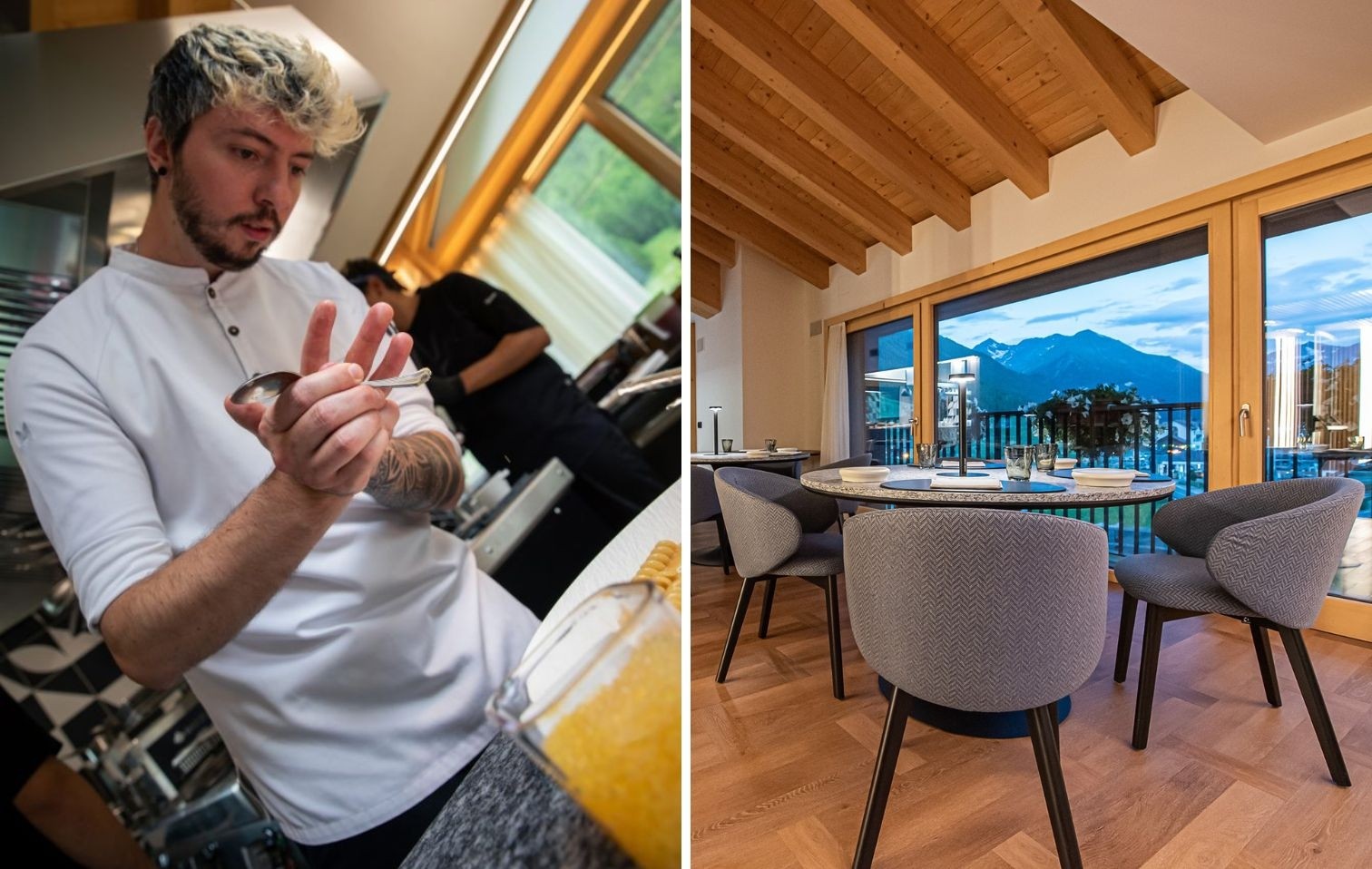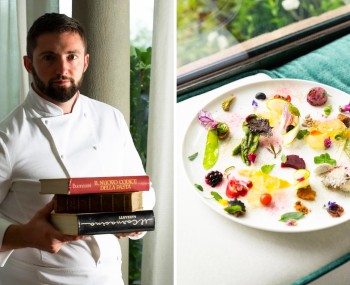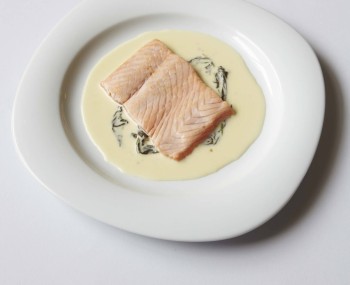A marriage of Eastern cuisine and mountain flavors, in a continuous search for flavor that touches on the umami, balsamic and smoky. A wonderful walk through the forest of flavors.
The Restaurant
There is a place in Livigno that presents itself as an unexpected oasis. One climbs the stairs of the Sporting hotel and there one finds Al Peršéf, a restaurant capable of putting the customer instantly at ease. Rigor, tranquility, and an evocative exposed pass where the curious (and especially gluttonous) guest can watch the brigade and chef at work. Attilio Galli's cuisine is sincere, rich in nuances that cannot be traced back to a specific place, travel notes that skim the East, then land on the wonders that Livigno's mountains offer.
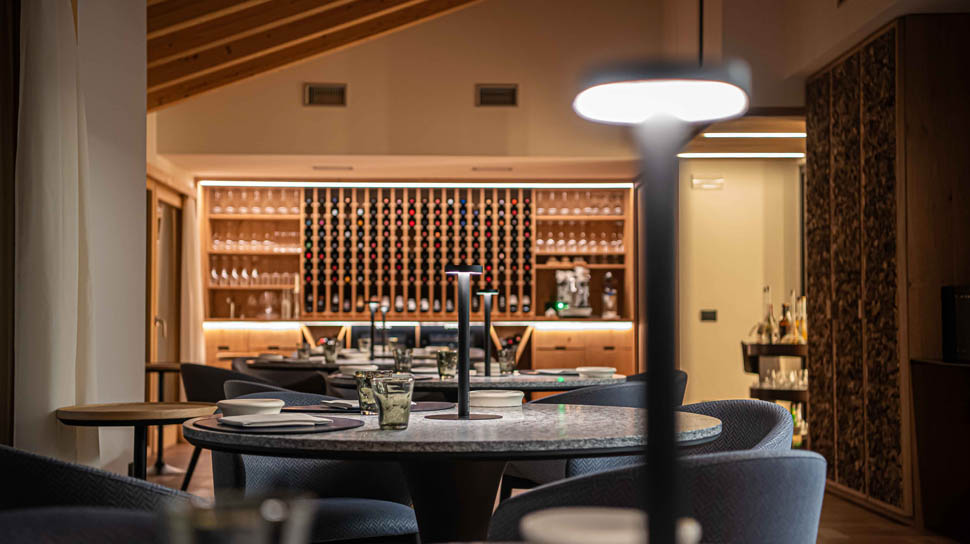
“When we started out we wanted to use what we didn't know,” explains the chef, “we were already oriented toward the search for umami, then slowly we moved closer to the territory, to be more and more aware that telling what we knew when we were growing up is easier and above all interesting. The oriental imprint is therefore always present, but now Galli's kitchen design is oriented toward discovering new nuances of his own land.
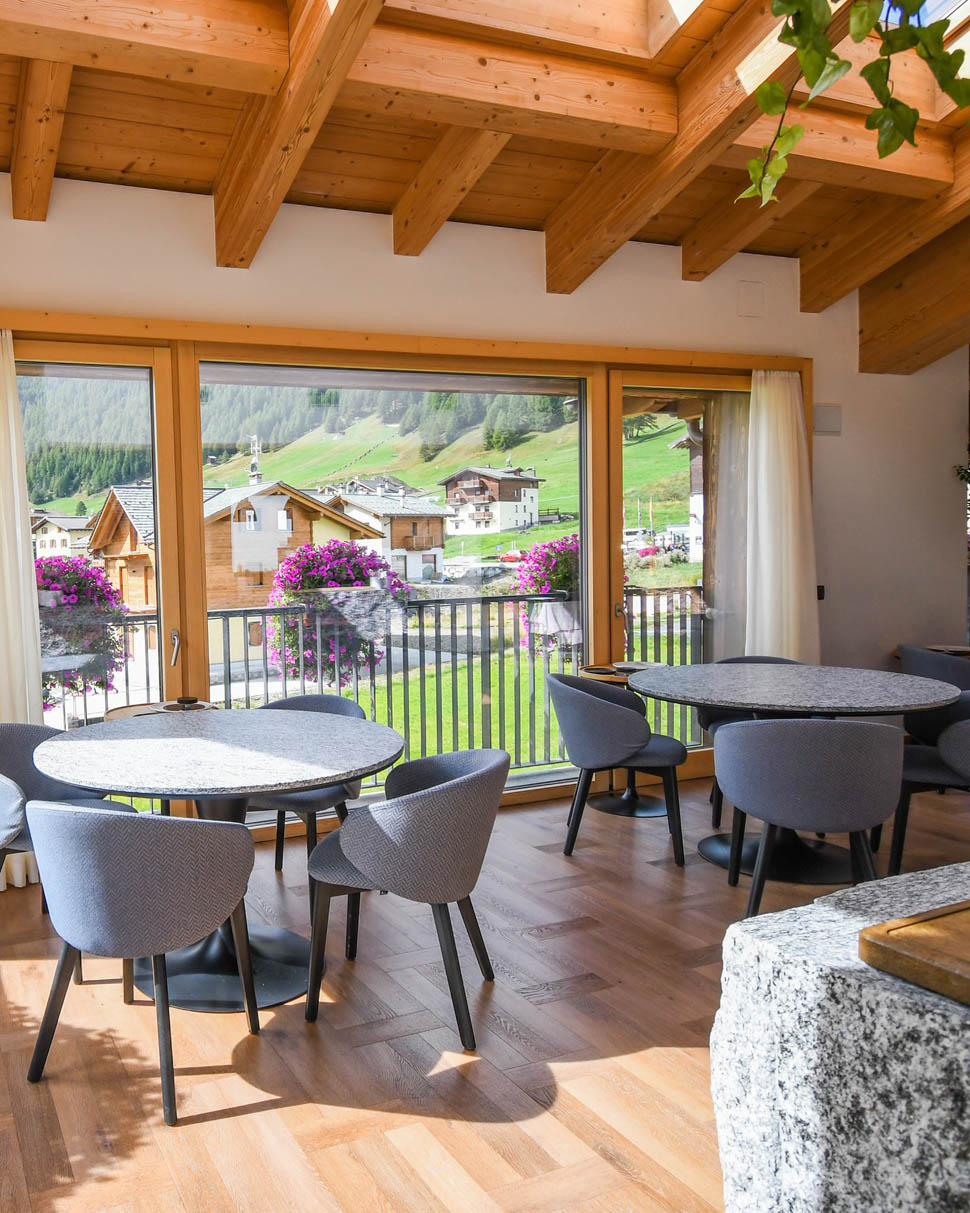
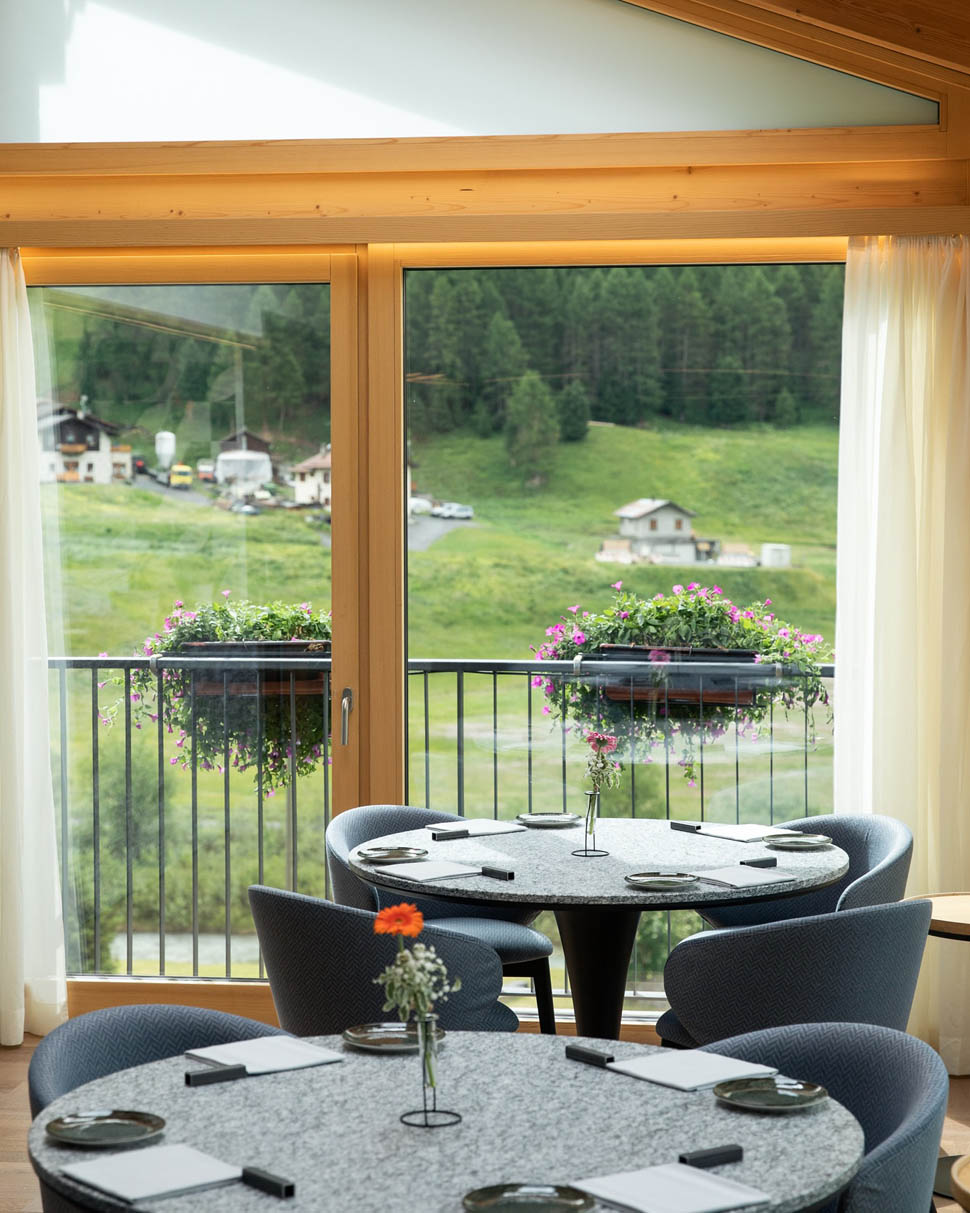
"In this new menu, the idea is to get the balsamic of the forest out of every dish and for the orient to support this flavor. It's a synergy, we want to enhance local alpine products but with the help of umami -and he continues-there will be a lot of herbs, we are foraging more or less once a week, it's a wonderful practice that frees the mind and enriches the dish."
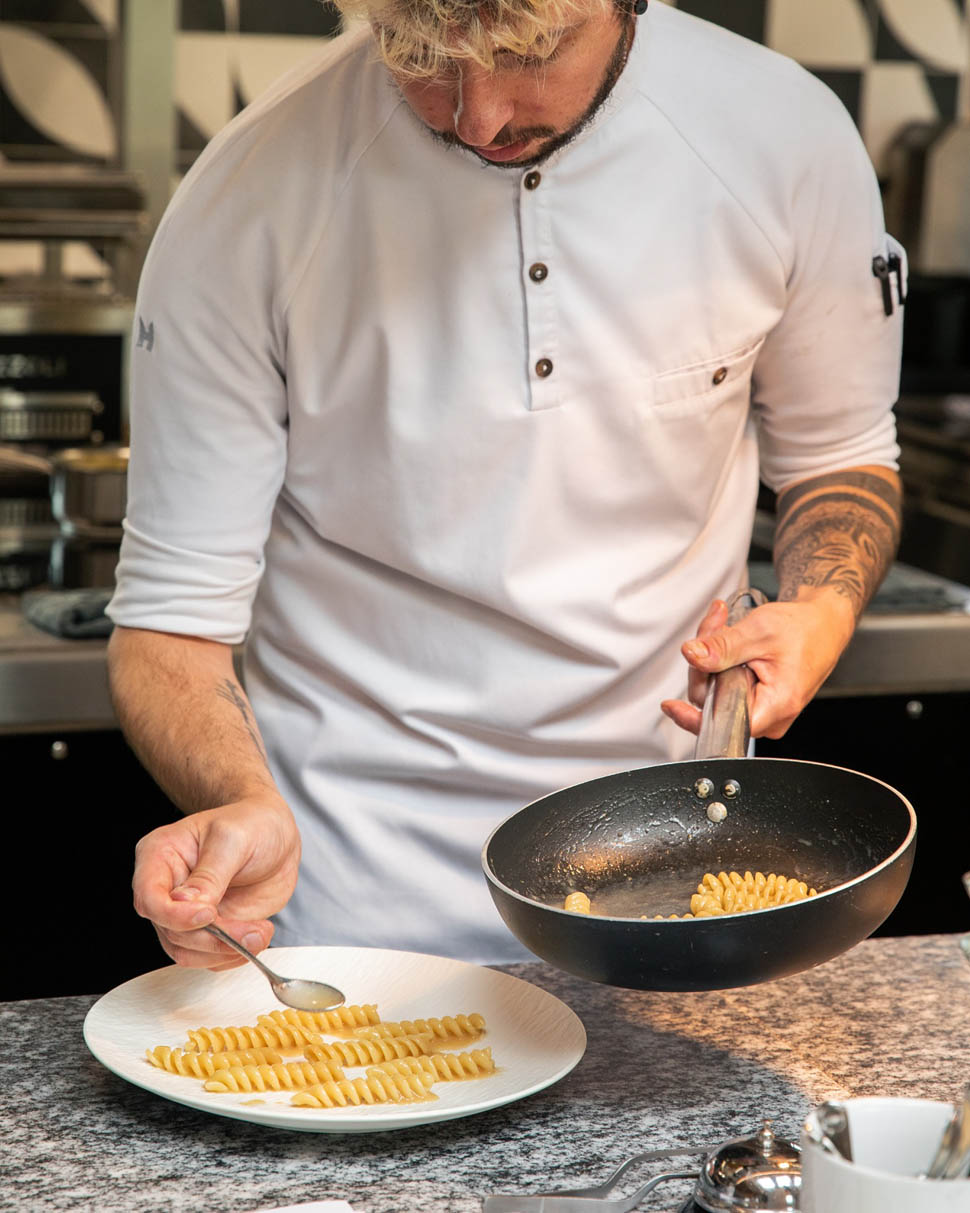
The tasting
In the new menu, the flavors are defined, straight as blades of taste. What has been done is first of all to work a lot on the smokiness. “It comes to us from the aroma of plants, from speck,” says Galli, “in many dishes there is a nice smoky undertone that goes very well with soy or sweet and sour. Also perfect in combination with fats, such as butter, cream of affioramento, milk, but also a fish like eel."
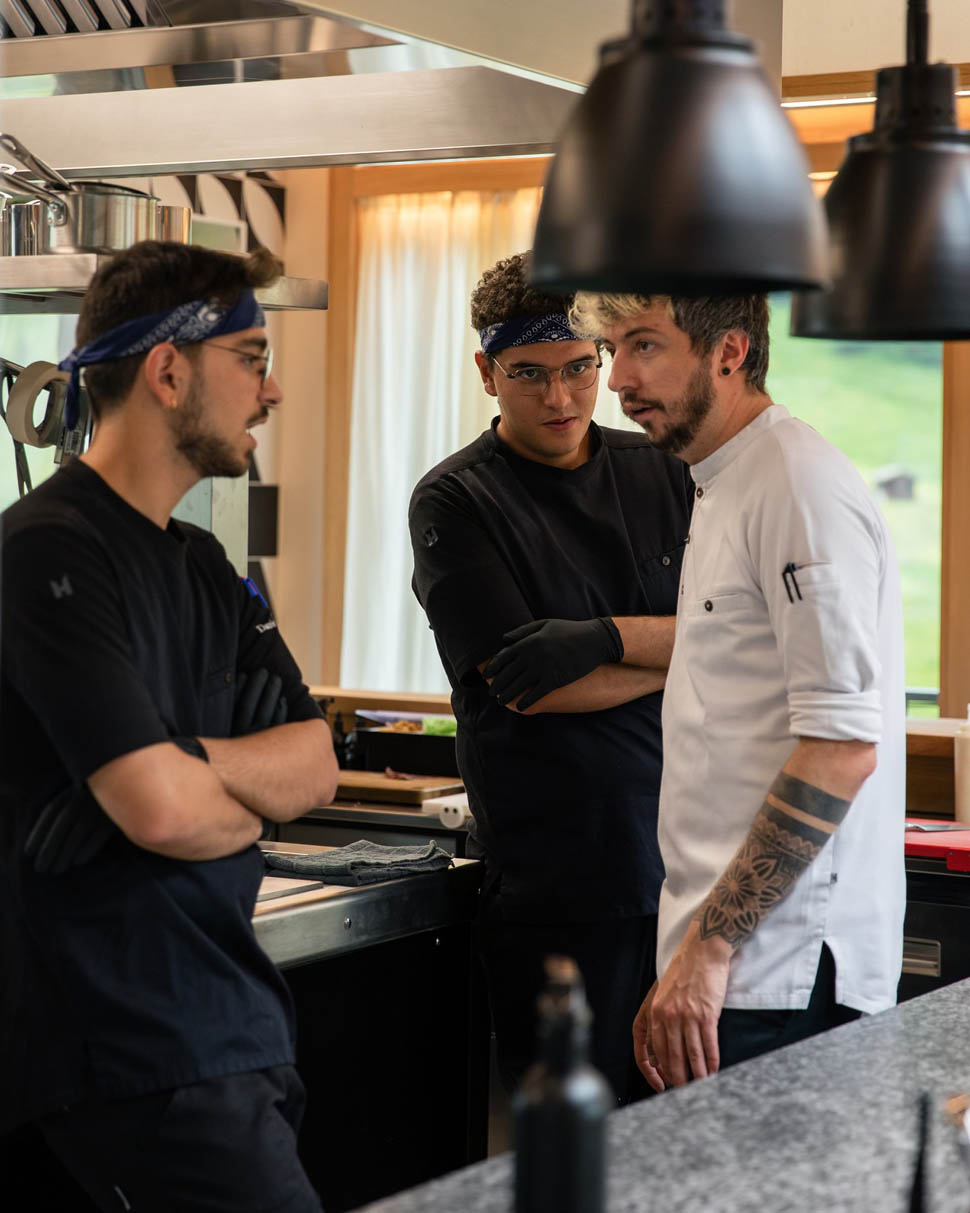
Thus, flavors such as balsamic, smoked, and smoked coexist in the tasting, but the fermentation technique is also used a lot, with which chestnuts, black walnuts, and even garlic are preserved. “We also focus a lot on the recovery and use of less noble parts, such as the spider (spider steak), that is, the flank, a cut that is little known because there is little of it and because it is very difficult to recover."
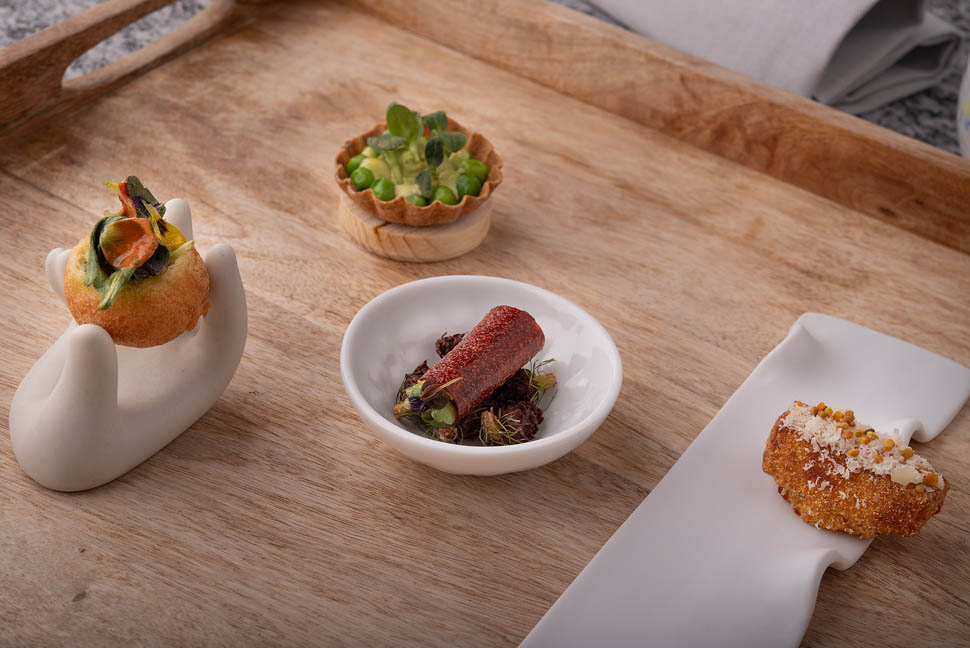
And following the same philosophy, a very special and beloved dish of the chef was also created, namely il Coniglio, the Rabbit, which is made using every anatomical part of the animal and is structured in several courses. And if there is meat sublimation, there is also vegetable sublimation. Proof of this is a dish that excites Galli greatly, composed solely and only of mountain herbs. “When a guest is faced with this course, it's as if they are taken to the middle of a forest full of scents."
Inside the dishes
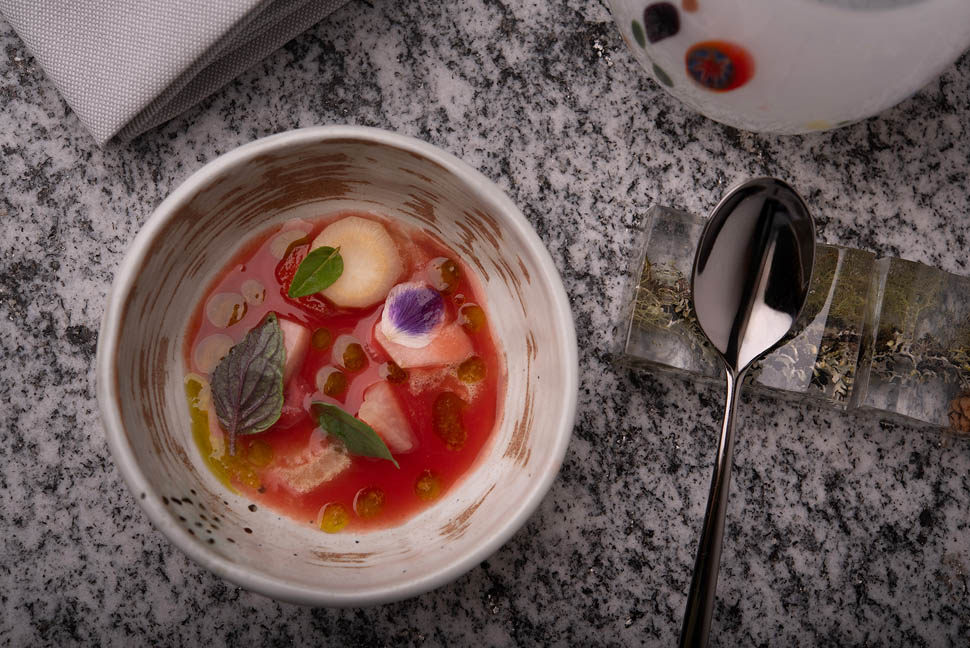
There are some dishes that remain iconic and irreplaceable in the restaurant's tasting itinerary. It is, for example, the Smoked Spaghetto, which has been on the menu for a good four years. “It happens to me that some customers come to the restaurant and give me carte blanche, on one condition: that this dish is always there. Here the secret is all in the broth.”
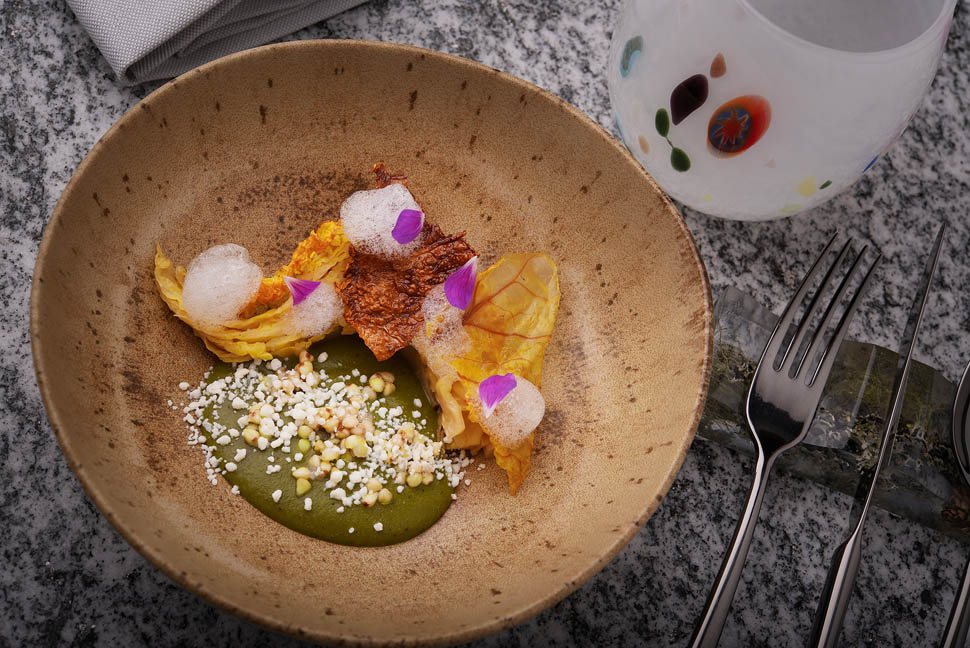
A high cornerstone of Galli's cooking is the Primordiale, which is an idea of pizzocchero. “We have our own field where we grow buckwheat-explains the chef-we use the leaves, before they go into germination to make a cream seasoned then with butter. The savoy cabbage leaf is tied like a roast, cooked almost in confit in this aromatic butter, and then the curd is made (with ricotta, made from freshly milked milk ed.) which appears in the form of a granita."
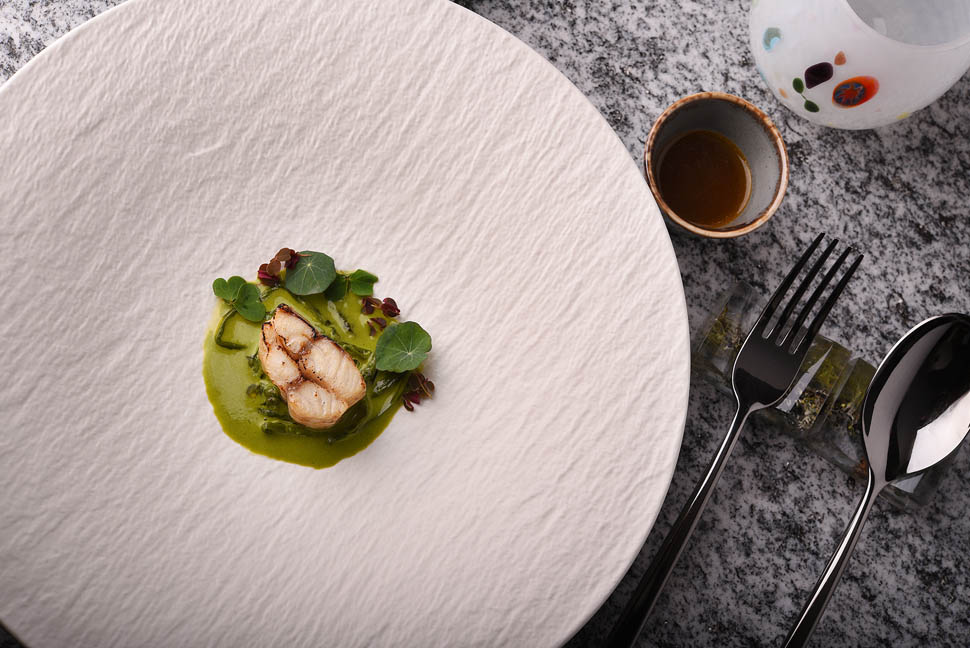
In a dish that undoubtedly tastes of the territory, pesteda intervenes to give the finishing touch, used in the buckwheat leaf emulsion. “This is one of our signatures,” confesses Galli and continues, ” This year there will be an evolution, we will also sprout buckwheat seeds and make a drink that will enrich the milk froth. Then hulled buckwheat will also be used, put in the dish boiled and seasoned with sage oil."
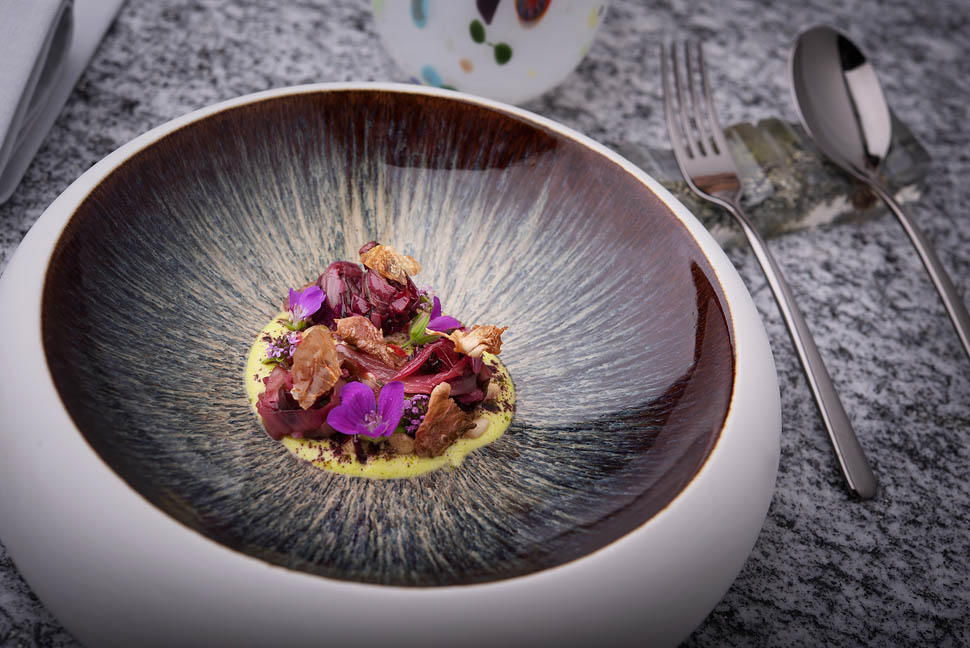
Another course that undoubtedly sketched Attilio's creative thinking was Radicchio. “We always use the seasonal one, from ceriolo, to tardivo, to rosa di Gorizia. It is a dish born from the idea of wanting to put a flavor like bitter, in an acetic/sour solution (made with tomato vinegar, pomegranate, elderflower ed.) left to macerate for ten days. From the 'santoreggia emulsion, an oil is then created which is whipped with the addition of crème fraîche to give fat to the radicchio. Elderberries are then dried and made into powder." Coloring the dish with flavor is then the wonderful pine nut curd, made by whipping these fruits and adding Siberian pine nut milk. Then there is the fermented raspberry, which gives the acidic part to the dish. A creation that, in its vegetable jubilation, gives full satisfaction to the guest, who, in the balance of this preparation, finds complete enjoyment.
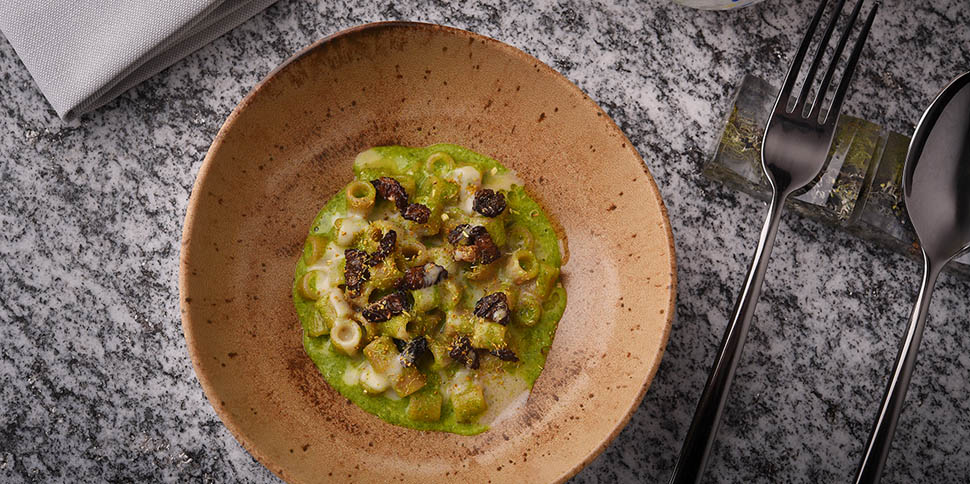
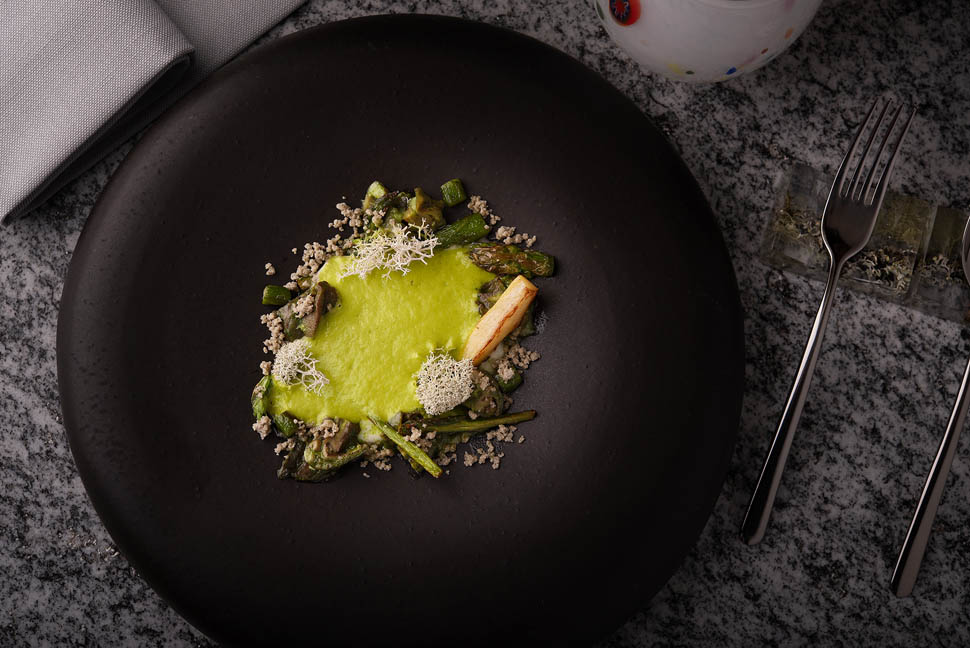
But to strike the strings of emotions, dulcis in fundo, comes Bondighibinet, a typical peanut-based dessert that has always cheered the children of Livigno. "This is a beautiful memory of January 6 in the childhood of all the kids who were born and raised here. During this day, you go to houses, a bit like Halloween and ask for a little thought-and he continues- In the old days, people used to give apples, peanuts, tangerines... and that's exactly why I wanted to use all these raw materials, to bring back what I experienced as a child in fine dining."
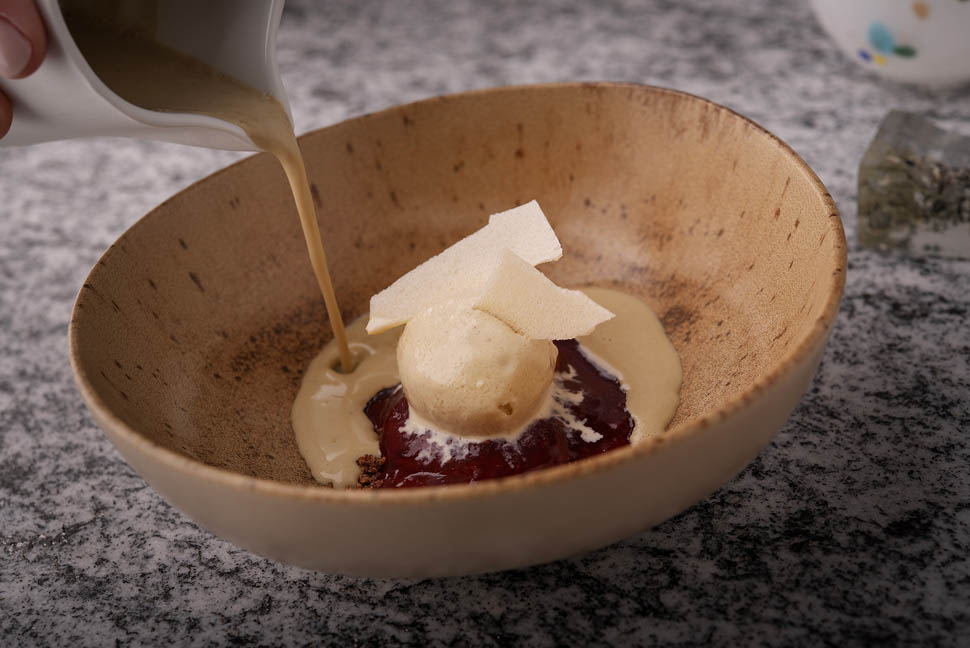
And in this wonderful message that smacks of poetry is the whole philosophy of Ristorante Al Peršéf and Attilio Galli: to make emotions surface, in a path that enhances the territory and its connection with the world, in a symphony of flavors capable of giving, with every bite, precious suggestions of taste.
Contact
Via Saroch, 1272, 23041 Livigno, SO
Phone: 0342 996665
